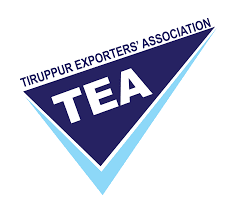Tirupur Exporters’ Association (TEA), led by Dr A Sakthivel, has played a pivotal role in promoting the development of exports and Tirupur itself. In a recent interview, KM Subramanian, President of TEA, sheds light on the current state of the Indian knitwear industry and TEA’s efforts to support its growth.
TEA recognizes the increasing demand for knitwear in the global market and has capitalized on this opportunity. The cluster in Tirupur has not only enhanced its infrastructure but also expanded machinery capacity to meet buyer requirements while ensuring compliance with social and environmental standards. Furthermore, TEA has focused on product diversification, such as the manufacturing of man-made fabric products, organic garments, and fashion garments, which has been a game changer for Tirupur.
The knitwear industry is witnessing significant growth in segments like activewear, swimwear, sportswear, and performance wear. TEA has also taken initiatives to promote sustainable knitwear production. Over the past decade, Tirupur has implemented measures like Zero Liquid Discharge, renewable energy investments, water conservation, and planting trees. Recycling of PET bottles and waste reduction are also being prioritized within the cluster.
Regarding the global scale, the Indian knitwear industry is dominated by MSMEs, constituting 90% of the sector. To remain competitive globally, TEA emphasizes the need for government support in terms of bank interest rates and packing credit.
TEA understands the importance of embracing technological innovations for enhanced production and high-quality products. Tirupur’s textile units have invested in imported machinery, allowing them to produce superior products and compete globally. Additionally, the adoption of innovative technologies has led to increased efficiency and productivity.
Looking ahead, the future of the Indian knitwear industry appears promising. With importing countries’ growing acceptance of the “China +1 policy,” alongside Tirupur’s infrastructure development, machinery capacity, sustainability efforts, and preparedness, export growth is expected to soar. Additionally, the signing of agreements with the UK and the potential pact with EFTA, as well as ongoing negotiations with the GCC and New Zealand, are seen as catalysts for industry expansion.
TEA remains committed to supporting its members through regular programs and expert advice. They encourage product diversification, particularly in the man-made fabric sector, to align with global market demands. As global consumption trends towards 75% man-made fiber and 25% cotton, TEA recognizes the need for adaptation and staying ahead of industry shifts.
In conclusion, TEA’s leadership and the collaborative efforts of the Tirupur cluster are poised to ensure continued growth for the Indian knitwear industry, both domestically and in the global arena.

